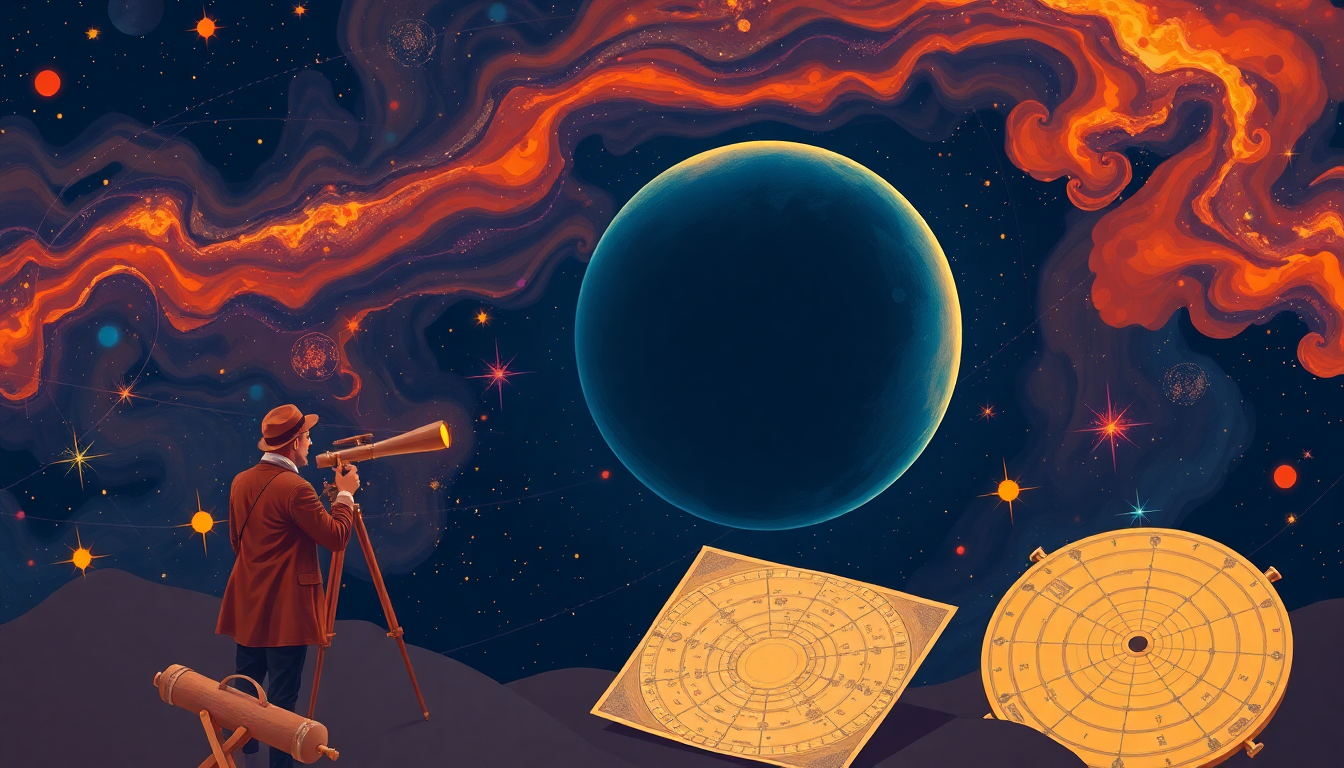The Enigmatic Pursuit of a Hidden World
In the vast cosmic theater, the story of Vulcan stands as one of astronomy’s most captivating yet forgotten chapters. Before Albert Einstein’s theory of relativity reshaped our understanding of the universe, astronomers were on a quest to unveil a hidden planet within our very own solar system.
The 19th century was a golden era for astronomical discoveries. The detection of Uranus and Neptune had inspired astronomers to search for other planets that might lurk unseen beyond the dark expanse of space. However, one planetary search was centered much closer to home—right between the Sun and Mercury. This quest revolved around a hypothetical planet named Vulcan.
The Peculiar Perihelion Precession
The journey began with an anomaly. Astute observations highlighted an irregularity in Mercury’s orbit, specifically its perihelion precession. Essentially, the point of Mercury’s closest approach to the Sun didn’t align as Newtonian physics predicted.
- Newton’s Laws: While Newton’s gravitational model accurately described the orbits of other planets, Mercury seemed to deviate by a small, but persistent amount.
- Perihelion Precession: Mercury’s perihelion—or the point of its orbit closest to the Sun—seemed to advance more rapidly than Newton’s laws accounted for.
Predominant 19th-century astronomer Urbain Le Verrier hypothesized that an unknown planet, orbiting even closer to the Sun than Mercury, could be exerting enough gravitational force to cause this discrepancy. Thus, the search for Vulcan began.
The Quest and The Misleading Observations
Imaginations were sparked, and astronomers across the globe eagerly scanned the sky, hoping to catch a glimpse of Vulcan. And, indeed, several claims of sightings emerged.
One notable observation came from Edmond Modeste Lescarbault, a French doctor and amateur astronomer. In 1859, Lescarbault reported seeing a small, dark spot transit across the Sun—a potential Vulcan sighting.
Though Lescarbault’s sighting lent credence to Vulcan’s existence, subsequent observations struggled to substantiate it. Reports of this elusive planet were inconsistent and unreliable. Sometimes it was observed, other times elusive. The astronomical community was left in a quandary.
- Le Verrier himself grappled with the data, yet remained a staunch believer in Vulcan’s existence until his death.
- Other astronomers, including the renowned American astronomer Joseph Winlock, also claimed to have seen Vulcan, yet no definitive evidence ever surfaced.
Einstein’s Paradigm Shift
The celestial enigma endured until the dawn of the 20th century, when Albert Einstein revolutionized our grasp of gravity. His general theory of relativity provided an astonishing explanation for Mercury’s anomalous orbit: the curvature of spacetime itself around the Sun.
This curvature adjusted the perihelion precession of Mercury in precisely the way observed, eliminating the need for the hypothetical Vulcan. The predictions were confirmed through meticulous observations during a solar eclipse in 1919, which aligned with Einstein’s theoretical framework. This wiped out the necessity for Vulcan and consigning it to the annals of astronomical history.
Einstein’s revelations didn’t just abolish the need for Vulcan, but reshaped the broader understanding of astrophysics, influencing everything from our ultimate grasp of black holes to the Big Bang.
The Legacy of Vulcan
The tale of Vulcan is a reminder of the scientific method’s beauty. It embodies the persistent quest for understanding, showing how theories evolve through questioning, investigation, and revision. Although Vulcan turned out to be an astronomical red herring, its search spurred advancements in observational astronomy and fostered our persistence in questioning the cosmos. The Vulcan episode further underscores that science is not a static collection of knowledge, but an ever-evolving quest for truth.
The pursuit of Vulcan exemplified humanity’s undying curiosity and our enduring desire to seek the unknown. And while Vulcan may have vanished into the expanse of disproven hypotheses, the lessons learned from its pursuit continue to light our way through uncharted cosmic territories.
So, next time you gaze at the night sky, remember Vulcan and the dedicated astronomers who chased it. Their efforts remind us that every journey, even one leading to an unseen world, enriches our understanding of the universe and our place within it.
